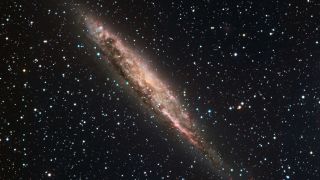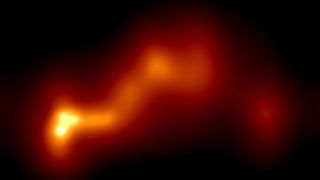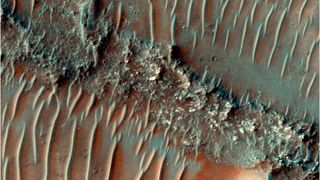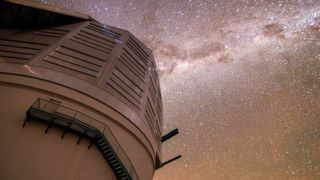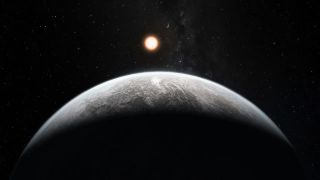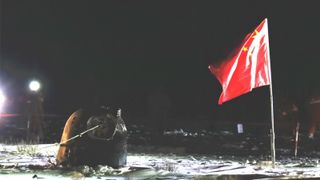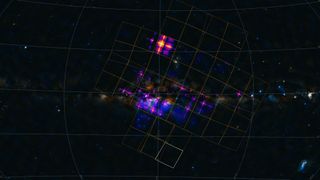Keith Cooper
Latest articles by Keith Cooper

How a 'mudball' meteorite survived space to land in the jungles of Central America
By Keith Cooper published
"The fall of Aguas Zarcas was huge news in the country. No other fireball was as widely reported and then recovered as stones on the ground in Costa Rica in the past 150 years."
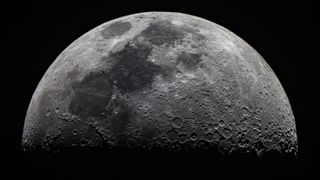
Is the moon still geologically active? Evidence says it's possible
By Keith Cooper published
Wrinkle ridges that formed in the past 160 million years suggest recent geological activity on the moon.
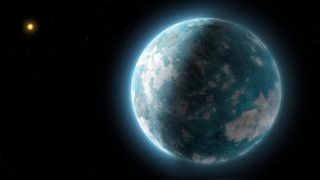
Newly discovered super-Earth orbits in and out of its star's habitable zone. Could life survive its extreme climate?
By Keith Cooper published
The climate on such a world must be beyond bizarre.
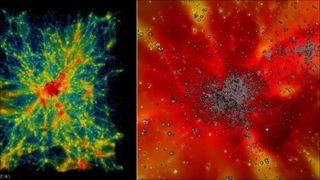
World's 2nd fastest supercomputer runs largest-ever simulation of the universe
By Keith Cooper published
The simulations will be used by astronomers to test the standard model of cosmology.
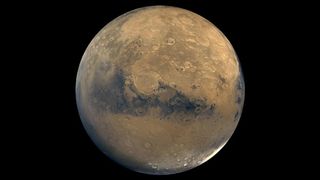
Boost for Mars life? Red Planet's magnetic field may have lasted longer than thought
By Keith Cooper published
Mars' global magnetic field may have hung around for 200 million years longer than scientists had thought, possibly giving life a longer window to take hold on the Red Planet.
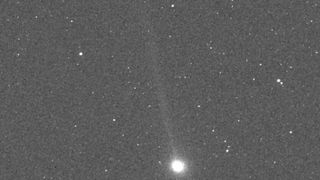
Phew! No 'doomsday' asteroids hide in famous broken comet's debris stream
By Keith Cooper published
The Taurid Meteoroid Stream, which is possibly responsible for the famous Tunguska and Chelyabinsk impacts, probably doesn't hide a civilization-killing asteroid.
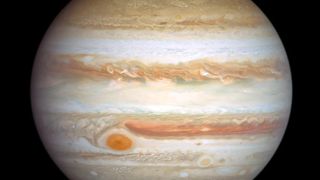
Jupiter's Great Red Spot is being squeezed, Hubble Telescope finds — and nobody knows why
By Keith Cooper published
The Hubble Space Telescope has seen Jupiter's Great Red Spot oscillating in width as it drifts around the planet. Could this be related to its overall shrinking?
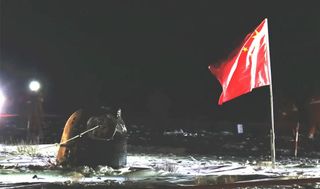
The moon might still have active volcanoes, China's Chang'e 5 sample-return probe reveals
By Keith Cooper published
China's Chang'e 5 mission brought back evidence that the moon had erupting volcanoes just 120 million years ago.
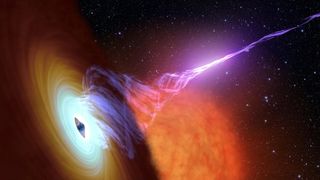
Scientists make lab-grown black hole jets
By Keith Cooper published
By using protons to probe how a magnetic field responds to an expanding plasma, experimenters have replicated the particle jets spewed out by active black holes.
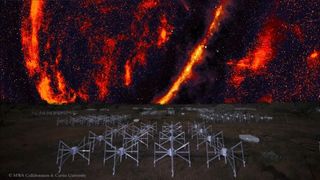
SETI searches for alien life in over 1,000 galaxies using unexplored radio frequencies
By Keith Cooper published
Although no aliens were found, the results have helped constrain expectations of possible alien transmitter power.
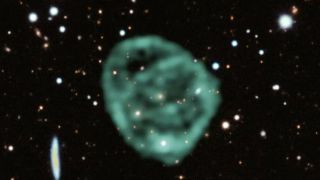
Astronomers discover new 'odd radio circle' near the center of our galaxy
By Keith Cooper published
A mysterious ring invisible at all wavelengths except radio could be a trace of a dramatically unstable star shedding its skin.

Astronomers measure 'warp speed' of Milky Way galaxy
By Keith Cooper published
The Milky Way is warped, possibly as the result of a collision with another galaxy billions of years ago. Studying this warp could reveal more about the structure of our galaxy's hidden matter.

Rare 'polar rain' aurora seen from Earth for the first time
By Keith Cooper published
Seen for the first time from the ground, the polar rain aurora produced an eerie green glow captured on camera in Norway.
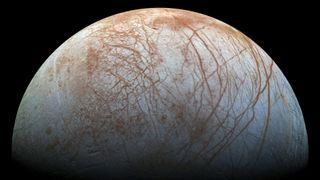
If alien life exists on Europa, we may find it in hydrothermal vents
By Keith Cooper published
If there's life on Jupiter's moon Europa or Saturn's moon Enceladus, it could have a network of deep-sea hydrothermal vents to thank for its existence, new research suggests.
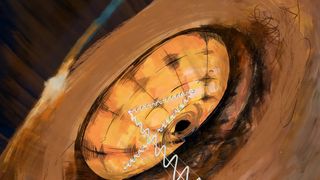
Why is mystery object Cygnus X-3 so bright? Astronomers may now have the answer
By Keith Cooper published
The X-ray-emitting binary system Cygnus X-3 features a massive star donating matter to a compact object, probably a black hole. That may explain its perplexing brightness.
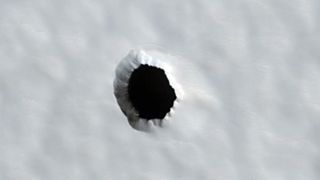
Mysterious 'hole' on Mars could be future home for astronauts
By Keith Cooper published
This pit crater making recent headlines may open into a larger cave that could provide a sheltered environment for both astronauts and hypothetical Martian life.
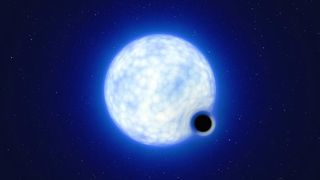
'Vanishing' stars may be turning into black holes without going supernova, new study hints
By Keith Cooper published
Stars that vanish from the sky may be collapsing directly into black holes without going supernova first, a new study of a bizarre binary star system suggests.
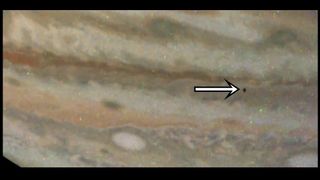
Jupiter's elusive 5th moon caught crossing the Great Red Spot in new NASA images
By Keith Cooper published
NASA's Juno spacecraft has spotted the elusive fifth moon of Jupiter transiting the giant planet's Great Red Spot, giving astronomers a rare view of this small but intriguing natural satellite.
Get the world’s most fascinating discoveries delivered straight to your inbox.
